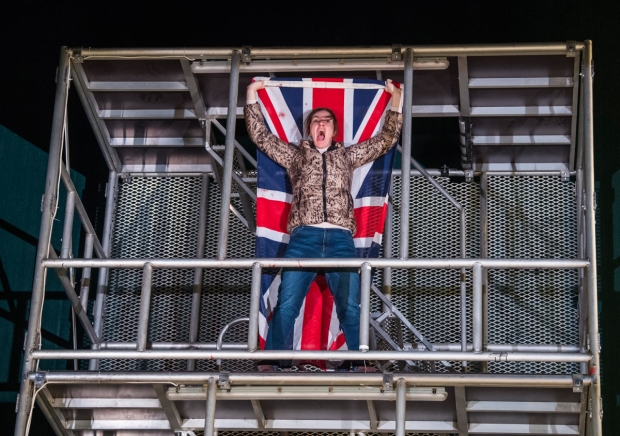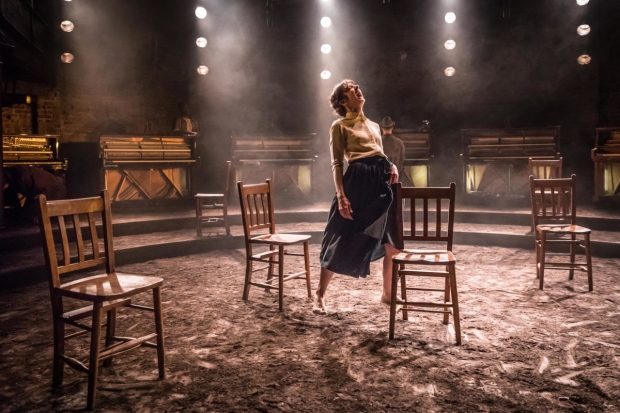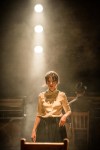As Plough and the Stars shows, radical rethinkings of classic works must be handled with care
After hosting a master class with choreographer William Forsythe, Sarah Crompton reflects on how difficult it is to re-invent a classic text

© Tristram Kenton
Last week I hosted a Master Class at English National Ballet with the choreographer William Forsythe. I think he is a genius, the man that future generations will think of in the same breath as Petipa and Balanchine; someone who has thought more and understood more about classical ballet and dance than anyone else.
He’s making a new piece for the company which will premiere at Sadler’s Wells on April 12 – a real coup for them. It’s shown in a programme called American Voices alongside an earlier work of his called Approximate Sonata, choreographed in 1996. As part of the class he rehearsed Begoña Cao and Francisco Bosch in an extract from that piece – and did something fascinating.
When performed, it is to a modern score by Thom Willems. But here he asked them to perform it to Beethoven – and then to the famous Black Swan pas de deux from Tchaikovsky’s Swan Lake, the urtext of narrative classical ballet. The effect was revelatory. To Beethoven the movement looked formal, baroque, incredibly rhythmic and fast. To Tchaikovsky, it took on the shape and structure of a story. Both versions revealed it in different lights from the way I had previously seen it.
I had real difficulties with the modern setting of The Plough and the Stars
Of course, intellectually, we know that the way something is presented affects the way we view it. That’s why we keep going to the theatre; a director and designer’s emphasis, the lighting and the soundtrack, the performances, all alter the nuance and shape of a play. But Forsythe’s demonstration reminded me how little we can control our reactions to those alterations of tone. Our reactions are instinctive and visceral as much as thought.

© Marc Brenner
Last week I also caught Sean Holmes’ production of The Plough and the Stars at the Lyric Hammersmith and was moved all over again by the humanity and power of Sean O’Casey’s writing. But I had real difficulties with the modern setting. In theory, I admired the way that Jon Bausor and Catherine Fay’s set and costume designs scraped away the accretions of history and the air of Oirishness that can afflict more traditional period-dress productions.
Rebecca Frecknall has entirely revitalised Summer and Smoke
But in practice, my brain couldn’t quite make the leap; the very specificity of the costumes kept cutting against the specificity of the events, set around the 1916 Easter Rising. The bold gesture, while lending the production vigour, also undermined it.
I am all in favour of liberating plays from their time and place. And specific updating can sometimes work brilliantly. I have never forgotten Bill Alexander’s production of The Merry Wives of Windsor at the RSC in 1986, which with the help of William Dudley’s wonderfully spry designs, transported the play into the 1950s with such impact that it was suddenly revealed as a proper comedy rather than a tedious slog. But such radical rethinking needs to be handled with care. If it confuses rather than liberates the play, then it is counter-productive. At least for me.
There is, however, another way, as Rebecca Frecknall’s visionary version of Tennessee Williams’s Summer and Smoke at the Almeida reveals. She’s perhaps helped by the play’s relative lack of familiarity, but she has entirely revitalised it by – with the help of designer Tom Scutt and the entire production time – setting it free of specific time and place and letting it sail in a metaphorical world.
It’s a wonderful production because every aspect of its being serves to coax out and emphasise Williams’ innate understanding of the terrible conflicts in the human soul and the psychological as well as the physical restrictions that warp and constrict human lives. It doesn’t transpose events from one time to another. It liberates them into a timeless context. In doing so, it changes everything.

















